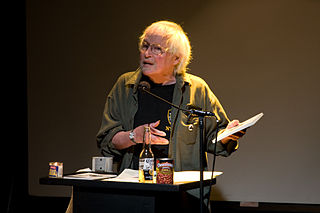A Quote by Booker T. Washington
No race can prosper till it learns that there is as much dignity in tilling a field as in writing a poem.
Related Quotes
Children learn what they live.
If a child lives with criticism... he learns to condemn.
If he lives with hostility... he learns to fight.
If he lives with ridicule... he learns to be shy.
If he lives with shame... he learns to be guilty.
If he lives with tolerance... he learns confidence.
If he lives with praise... he learns to appreciate.
If he lives with fairness... he learns about justice
I'm always writing towards a discovery. When I'm writing poems in particular, I'm often writing because a few images coalesced in my mind and I thought, "I wonder why these images are abrading against each other. I wonder what happens if put them in a poem and explore them." I'm trying to learn something every time I write a poem.
From the beginning I felt that I didn't ever want to leave the impression that the process of writing a poem is totally mysterious. I couldn't explain everything that went on in the creation of a poem, but I could try to explain as much as I knew. I thought readers deserved that. I didn't want to set myself apart as being someone special.

































